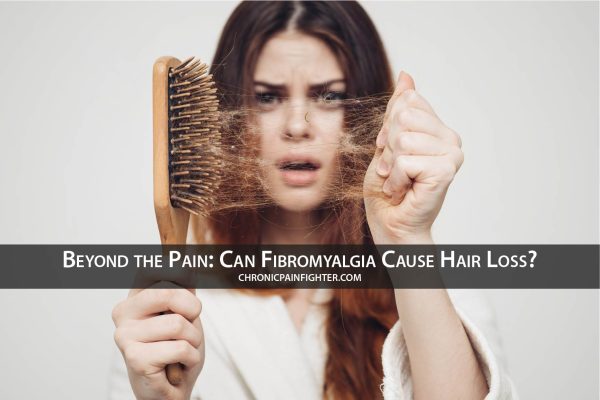This study is an essential spread among fibromyalgia patients because it makes a very good point for acceptance and resiliency that arises from coping with fibromyalgia and accepting it. And, the complications that mental illness puts on acceptance.
The study: Patients With Fibromyalgia Reporting Severe Pain but Low Impact of the Syndrome: Clinical and Pain-Related Cognitive Features 283 subject people with a high level of pain from fibromyalgia, included in this study. Moreover, the study was divided into two groups, first, those with low impact, second, those with moderate to high impact. The things that were looked at in this research study were perceived stress, depression, anxiety, pain catastrophizing, physical inflexibility and perceived control over pain.
Results
The results were just as expected, lower anxiety, stress, and depressive symptoms. Along with lesser pain catastrophism, perceived control over pain, and psychological inflexibility were the findings in the low-impact group. Significant predictors of group relationship between low impact and moderate to high impact in the regression analysis were “cognitive fusion” (psychological inflexibility), “helplessness” (pain catastrophizing), and depressive symptomatology, together with pain intensity and other fibromyalgia symptoms.
Conclusions
The current study provides additional evidence on flexible resources in chronic pain by identifying some variables (reduced depressive symptomatology, pain catastrophizing, and psychological inflexibility) differentially characterizing a profile of patients with fibromyalgia who are especially able to adjust with high levels of pain.
My thoughts
Depression
We all know it’s impossible to cope with pain when you are in depression. And when you are in depression, it causes more body aches and pains even without any other condition. It complicates pain management and increases pain in fibromyalgia and it compromises coping with it.
When my depression was on its peak, I was in moderate to high impact and I have issues with catastrophizing. I was fixating on the worse and believing that nothing will ever get better and improve, so why to bother treating. Its impact was high in my life and of course, the pain was high too.
And, when my depression was successfully dealt with through therapy and medication I have more perceived control over my pain. You do stop catastrophizing. Indeed, you have control over the depressive symptoms and thoughts. And, you can manage the pain better, you can cope better because high pain doesn’t change but Coping does make it less.
Coping with High Pain
The study is on high pain, the impact of it on fibromyalgia. So, how do we cope with high pain in fibromyalgia, with high impact and low impact with high pain? Well, I did had a high impact of pain for some time. So while I’m not depressed and yes, I even have addressed all the problems stated. My level of pain for fibromyalgia is the same from moderate to high impact. And it’s never changed, only my capacity to cope and my capacity to seek out acceptance and resiliency. Not catastrophize, not fixating on the worst and not trying anything.
I do believe several things help and that I’m always willing to undertake new things to assist with my capacity to deal with the pain. I think if I cannot reduce the physical pain then maybe I can help my capacity to deal with the mental and emotional suffering thanks to pain. Then yes, the impact was less, maybe to moderate.
So psychologically, yes, we handle pain tons better when our comorbid mental disease or anxiety and depressive symptoms are managed properly. Because we manage it better emotionally and mentally. We perceive it differently, although physically it’s an equivalent, a minimum of in my experience, physically it never changed. But we can cope pain better if we manage our mental and emotional response to pain.
However, we can agree on the fact that mental illness only affects our ability to cope with the pain. And we need to have effective pain management in fibromyalgia, only then we can develop resiliency and acceptance. My major setback in acceptance is always my untreated Major Depressive Disorder. Which refused to let me deal with the chronic pain in my life.
Mental illness with Pain Conditions
And, I can say that we need to treat our mental illness along with the pain conditions. Sounds easy, but it’s not that easy, it is a piece of hard work and it takes time. And, no one gets out of it the same way as it looks. Sometimes, the therapy works and certainly, it helped me a lot but not enough, my brain needed medication too. It took me about four years with the therapy to overcome the depression by medication and therapy. And, with the help of that, I have done great ever since with pain management.
Then winter comes, alongside its winter blues, which hit me, and a replacement medicine adds up. Because this is often something I will be able to affect all the time. My point is, once we have depression and anxiety layered on top of fibromyalgia it complicates things. It is not impossible to deal with but there are complications. We have to treat both problems at the same time which makes it harder to cope with. Which is exactly what the study is saying. Because, only when we can deal with the depression symptoms, then we can manage our pain better.
Managing High Pain
But maybe the impact fluctuates even as our psychological state does. Which is what makes it so unpredictable. When it’s a moderate impact we expect we are capable of quite more. We are. then high impact happens and then we lose all we gained, again. Because we did not realize we’ve to pace all the time and that we have limited all the time. And therefore the mental and emotional impact fluctuates with time and life and pain.
But, when it involves managing high pain, treating my depression certainly has helped me survive. This may be a good reminder for us to focus the maximum amount on our psychological state as we do our physical health. Both matter and therefore the impact on how we cope is often quite significant.
The study just backs up what we already know we do once we are in depression and high pain. it’s not a fun place to be in. But it’s a damn hard battle to urge out of. And getting effective treatment isn’t as easy together would think. And even once we do… we’ve to recollect we still have that mental disease and it’ll be an element in our treatment for an extended time. and may cause problems for coping at any time.
A friend of mine also have a detailed blog on Chronic Illnesses. Check it Out Here.







I apprechiated your thoughts on the study. I hate that the depression we suffer is called a mental illness. It isn’t. It’s a sign that we long to be well. Its a function of our waining resiliency. Why do we have to be labeled mentally ill when our resources for coping have disappeared? I have a few more thoughts and wish you would send me a message on my facebook page called My ESSENTIAL Self- Care. Or message me there. Lisa Laster-Kropp